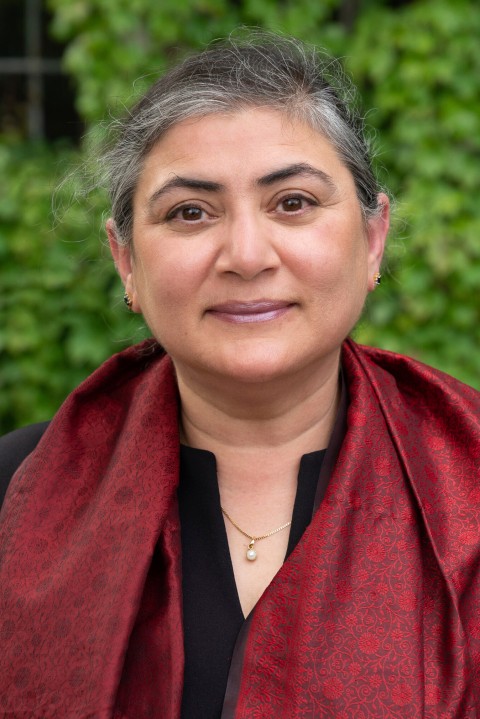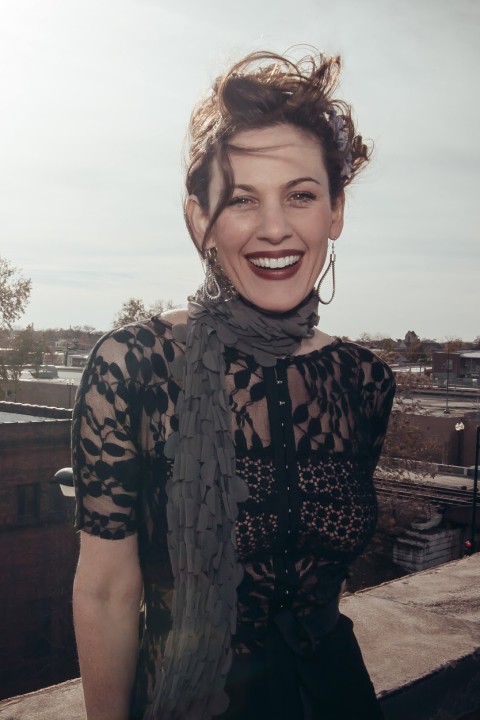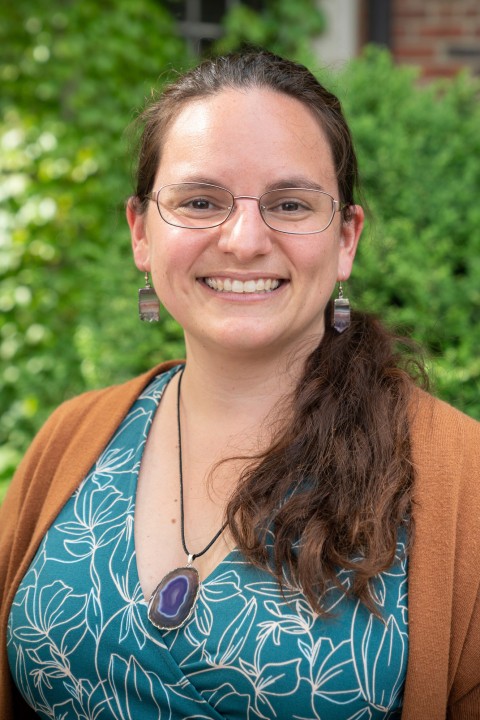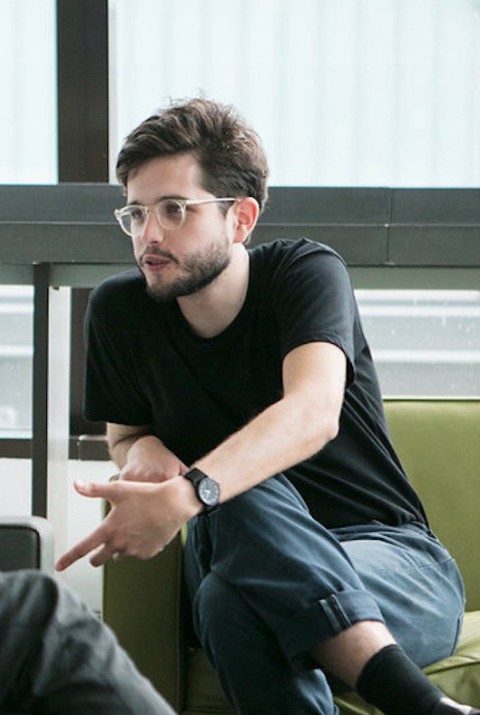Navneet Bhasin, Rachel DeWoskin, Jessica Kirzane and Lucas Pinheiro have been awarded the Glenn and Claire Swogger Award for Exemplary Classroom Teaching.
Based upon nominations from University of Chicago undergraduates, the award recognizes outstanding teachers with College appointments who introduce students to habits of scholarly thinking, inquiry and engagement in the Core Curriculum, the College’s general education program.
In addition to the Swogger Award, five faculty members were recently awarded the Llewellyn John and Harriet Manchester Quantrell Awards and five graduate students received the Wayne C. Booth Prize.
Read more about the Swogger Award recipients below.
Navneet Bhasin, Senior Lecturer, Biological Sciences Collegiate Division
Since high school, Navneet Bhasin has been interested in how humans contribute to the biological world and are, in turn, affected by it. After studying microbiology through her undergraduate and graduate years, she further pursued that interest through applied biological sciences research at Harvard University and Boston University.

In her biology courses, Bhasin teaches students the methods and skills needed to find biological solutions to challenges in fields ranging from medicine to forensics.
“If you can identify problems, my classes help you develop the tools to find solutions for them,” Bhasin said. “Thinking outside the box helps drive innovation. Finding an interdisciplinary approach is key in this interconnected world of exploding information.”
While the switch to remote learning over the last year curtailed access to the traditional lab setting, it allowed Bhasin to teach using materials found in the home, which she said was a huge success.
Students in her summer “Biotechnology for the 21st century" class were tasked to discuss a fermentation process, which increases foods’ shelf life and improves digestibility, using ethnic family recipes.
“This adaptation allowed us to design new procedures for experimentation which were less technology-intensive and used items readily available in the home,” Bhasin said. “Students learn best when they can relate to the content and what they are learning has a practical application."
“They tend to learn it easier and it sticks around longer because it is relatable,” she added.
Rachel DeWoskin, Associate Professor of Practice in the Arts, Department of English Language and Literature
Rachel DeWoskin took a nontraditional route to the University of Chicago. After spending her twenties in China, where she worked as a consultant and actress following her bachelor's at Columbia University, she came back to the U.S. to study poetry and translation as a graduate student at Boston University.

Upon completing her master’s, DeWoskin realized she was as passionate about prose as poetry, and has now written five novels, in addition to a poetry collection and a memoir about the years she spent in Beijing. Her interdisciplinary writing background helps her encourage students to bring “kaleidoscopic” perspectives to projects they read and create in her courses.
“We explore how projects take their best shapes and the useful intersections between genres,” she said. “These investigations in my own work, of what makes fine writing powerful, propulsive and moving, inform my conversations with students about published work, their work, and the world.”
As a student, DeWoskin’s favorite professors not only taught from the frontlines of their own research, thinking, and writing, but also asked students why the literature they wrote and read mattered.
In her own classroom, she poses those same questions to College undergraduates.
“I try to help students shape their own questions, in class and in their work, deepening nuance and wonder while polishing their writing until it’s as precise and beautiful as possible,” she said. “UChicago students are determined and brave, willing to do the difficult thinking, creating, and revising (and to take the sorts of artistic risks) that make books matter.”
Jessica Kirzane, Assistant Instructional Professor, Department of Germanic Studies
Jessica Kirzane didn’t begin studying Yiddish until after her junior year in college—when she was a summer intern for the Yiddish Book Center in Amherst, Massachusetts—but it didn’t take long for her to get hooked.

“I became enamored not only with the literature and culture itself, but especially with the community of scholars and activists that surrounded it,” said Kirzane, who earned her Ph.D. from Columbia University. “It was something I wanted to be a part of and make my mark on.”
She is now the only Yiddish language instructor at UChicago and teaches all levels of the language, from beginner language courses to advanced literature seminars.
Her particular areas of focus are the representations of race, gender and region in American Yiddish literature. She also works as a translator with an emphasis on translating women authors who wrote in Yiddish.
Regardless of if she’s teaching in-person or virtually, Kirzane works hard to cultivate a warm, trusting and open environment where students feel free to engage positively with each other. During the COVID-19 pandemic, she has established a reading buddy system in her Core classes.
“I wanted to give them a space where they could make a friend from class and could work through the class material without the intimidation or top-down feeling of having the instructor present,” she said. “Students were lonely, and I am so glad that I was able to help them connect with each other.”
Lucas Pinheiro, Teaching Fellow, Social Sciences Collegiate Division
As an undergraduate, Lucas Pinheiro took a year-long class on the classics of social and political thought, which served as his first introduction to political theory.

Two master’s degrees and a Ph.D. in political science later, Pinheiro is now teaching a similar course in the Social Sciences Core in the College: “Classics of Social and Political Thought.”
“While teaching in Classics, I have been able to impart to my students the value of reading classic texts that are often challenging and not immediately appealing to everyone enrolled in my classes,” Pinheiro said. “My favorite part of teaching in the Core is also the most rewarding: to help intellectually curious students develop into self-reflective thinkers, clear communicators and generous collaborators.”
In his classes, Pinheiro works to provide students with the interpretive and analytical skills necessary to engage not only with complex political concepts, but also with the complex political world.
To that end, he aims to teach students to view disagreement not as a sign of misunderstanding, but as an essential aspect of critical thinking.
“I end class on the same note that I began: by encouraging students to develop a relationship to reading and learning driven by curiosity, patience, attention to detail, and—above all—an openness to perspectives that might be at odds with their own,” he said.